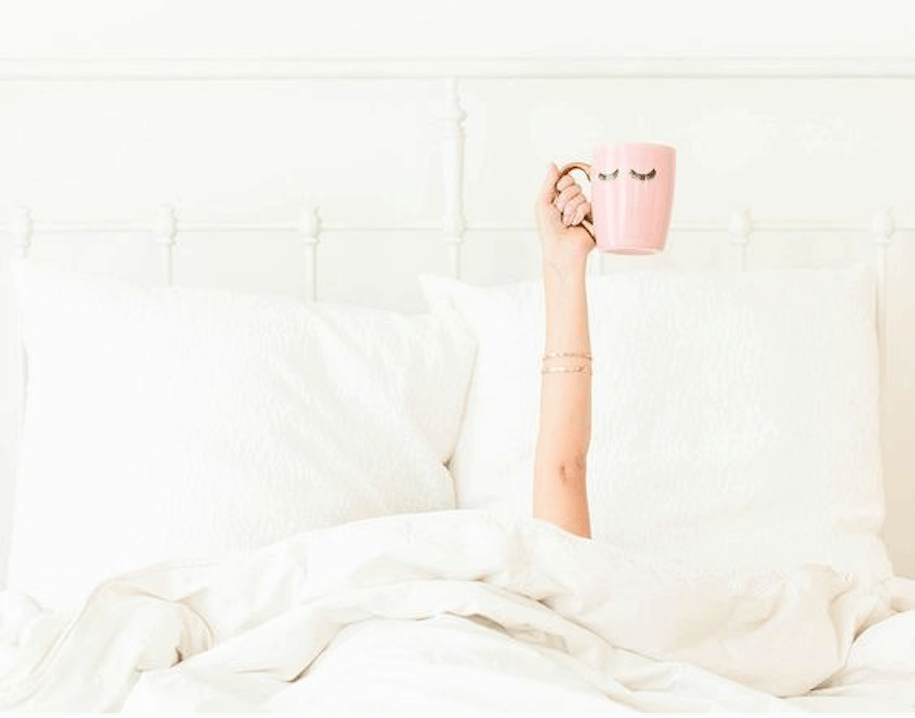
Right now, we’re going through this unusual phase where we don’t have to get up and rush to any place in particular. You would think that this means we’re all smashing our sleep schedule, right? Falling asleep in no time, perfecting our 8 hours, and waking up fresh as a daisy? Ahh – not quite. We don’t know about you, but if anything, our sleep cycle feels even more off lately, and we’re more tired than ever!
Why?? Let us explain 7 quick reasons and exactly what you can do about it.
1. INFORMATION OVERLOAD
We understand that staying up to date with all the latest news is important, but knowing when to switch off can be the difference between stress and sleep. Activating the parasympathetic nervous system (our ‘rest and digest’ mode) is what allows us to sleep and stress is the No.1 thing that prevents this.
SWIISH Tip: Try to abstain from browsing any media (TV, newspaper or phone) at least 30 minutes to an hour before bed. Spend this time with family, reading or doing something like meditation that will calm your mind instead.

2. CUPPA CAFFEINE
Whilst most of us know that having caffeine too late in the evening will disrupt our sleep, what we sometimes forget is the other beverages that can keep us awake as well! Be mindful of drinking black tea, green tea, white tea and oolong tea in the evening – as these all contain caffeine and can impact sleep more than you realise.
SWIISH Tip: Try a soothing herbal tea such as chamomile or rosehip, or our SLEEP Superfood Powder instead – these are ultra-calming and won’t overstimulate you.

3. BIG DINNERS
We all know the saying: “Eat breakfast like a king, lunch like a prince, and dinner like a pauper”, but what you may not realise is that eating this way not only improves weight and digestion, but also sleep! It takes a lot of energy for the body to break down food, so the bigger the meal, the more it has to focus on digesting – thus disrupting sleep.
SWIISH Tip: “Hara Hachi Bu” is a traditional Japanese phrase that means to eat until you’re 80% full (not 120% like most of us do!!). Seeing as the Okinawans of Japan are one of the healthiest populations in the world – why not try this eating practice yourself to help regulate sleeping patterns.

4. MINIMAL MOVEMENT
We knew it was coming because somehow exercise manages to pop its head up in every health topic! However, a predominantly sedentary lifestyle has been linked to feeling tired, lethargic, and energyless. This is not only because exercise helps us release cortisol (thus regulating our melatonin/cortisol hormone cycle for sleep) but also due to the energy boost it provides. The more you exercise, the more mitochondria you make – and these are the little things in your body that literally produce energy!
SWIISH Tip: Find a partner or friend to exercise with (even for only 20 minutes a day) and treat it like any other meeting or appointment you have that day. This means you can hold each other accountable. Now, when we say “with” we of course mean at a healthy distance! Try calling each other and scheduling an evening walk at the same time to ensure you actually leave the house and get moving! Who will your long-distance exercise buddy be?
5. BRIGHT LIGHTS IN THE BEDROOM
Did you know that you have photoreceptors all over your entire body that respond to light? It’s true – they’re not just in your eyes! At night when you’re in bed asleep, any light in the room can actually trigger your photoreceptors to respond by releasing stress hormones that in turn wake you up.
SWIISH Tip: Keep your room dark, moody and pitch black. An eye mask is perfect for the light receptors in your eyes, but pulling the curtains down so that your whole room is blacked out will ensure you enter a deeper, most restful sleep.

6. NOT ENOUGH DAYTIME SUN
Your circadian rhythm is like your internal body clock that regulates sleep. Although everyone’s is a little different, your body was traditionally created to match the rise and fall of the sun every day. If you’re the type of person who wakes up and never gets out into the natural light, chances are – you’ll be a lot more tired! Getting out in the sun (particularly first thing in the morning after waking) reduces your sleep hormone so that you feel less foggy and more energised for the day.
SWIISH Tip: Make seeing the sun for at least 15 minutes part of your morning routine. This is the perfect time to eat your breakfast, drink your coffee or do a meditation – and the bonus is it helps sustain your energy throughout the day.

7. MINIMAL PROTEIN
For women in particular, protein targets can be hard to hit. This can cause you to feel tired and lethargic as protein is the building block of almost every important process in the body – including hormones that regulate sleep. A lack of protein not only stops you from entering deep sleep, but it also means you’re unable to produce a sufficient amount of energy during the day.
SWIISH Tip: A good rule of thumb is to aim for 1 gram of protein per kilogram of body weight each day. Whilst everybody is different, just having this in the back of your mind when preparing meals is a great way to stay on top of your protein requirements. We love adding protein to our green smoothies!



